Acid sensitive teeth. Hypersensitivity of teeth: treatment, causes, recommendations
Increased sensitivity teeth most often occurs in adult patients, which is associated with dietary habits and a high risk of diseases of the oral mucosa due to smoking and the use of alcoholic beverages. It is important to carry out treatment on time, since in some cases a similar symptom is caused by incipient caries, which can be eliminated using a number of anti-hypersensitivity drugs. Before using any pharmacy medicines, it is advisable to visit the dentist's office in order for him to make an accurate diagnosis; more complex complex therapy may be needed.
Home treatments for hyperesthesia
If the disease has just begun to bother you, you can first try alternative methods of getting rid of the problem. For this are used special solutions which provide a soothing and healing effect. Some of the above remedies, which include ether, also create a thin film on the teeth, which eliminates pain and prevents caries from developing.
| Means | Image | Preparation | Daily amount | A course of treatment |
|---|---|---|---|---|
| One drop per 200 ml of warm water | No more than 2-3 times | 2 weeks | ||
| One drop per 150-200 ml of water room temperature | Up to 4 times | 1-3 weeks | ||
| 4 drops of mint and 2 drops of geranium per 200 ml | Up to 4 times | 1-3 weeks | ||
| Two drops of each component | Up to 6 times | 4 weeks | ||
| A tablespoon of 250 ml is brewed, infused for 1 hour | 3-10 times | 2 weeks | ||
| A couple of crystals for 200 ml, the solution should be slightly pink | 3-5 times | No more than two weeks | ||
| A tablespoon in a glass of water, insist 30-45 minutes | Up to 6 times | 4 weeks |
Attention! Sometimes you can find information that laundry soap also helps to eliminate the manifestations of hyperesthesia, as well as protect the enamel from destruction. The course of such treatment involves the use soap solution once a day. Care must be taken when cleaning hygienically and avoid swallowing soapy water, better than envy a separate brush for such care. Take care of your teeth with laundry soap it is possible for an unlimited time, but it is better to use a course of treatment for 4 weeks with the same break.
Protective gels against hyperesthesia
Fluocal
A modern medicine that needs to be applied directly to the surface of highly sensitive teeth. Due to the large amount of minerals and the fortified complex, it helps to protect teeth from decay and periodontal disease. Before applying, you will first need to thoroughly brush your teeth and the entire mouth cavity so that there is no plaque or food left on them.

After these steps, you will need to open your mouth wide and use cotton swabs to thoroughly dry the enamel to be treated. Not applied to each tooth a large number of gel, it is used on the front and back of the crown. For four minutes, the mouth cannot be closed and wet, so it is better to put cotton wool down under the tongue, which will absorb saliva. It is necessary to re-apply no earlier than six months, if good condition dental treatment procedure is repeated annually.
Bifluoride 12
The drug is produced in the form of a gel polish, which ensures the creation of the thinnest film on the enamel, which allows not only to relieve the symptoms of hyperesthesia, but also to prevent harmful bacteria from provoking carious destruction and inflammation. Bifluoride contains a large amount of fluoride and calcium, which is especially useful for patients with bad teeth. According to some patients and specialists, it is this gel polish that provides the most long-lasting and noticeable result.

Before applying the active substance, you will need to thoroughly clean the oral cavity, it is important to use fluoride-free products for this, this can be achieved using professional toothpastes. As in the case of Fluokal, you will need to thoroughly dry the entire surface of your teeth; a regular cotton swab or gauze is also suitable for this. Then the gel polish itself is applied directly to the back and front walls of the dental crown. You cannot close your mouth for 5-10 minutes so that the gel soaks the enamel well and creates the necessary film. It is not recommended to eat and drink for 2-3 hours after the procedure. Also, do not brush your teeth on the day of the procedure, as the film can easily wash off. If the condition of the teeth so requires, the procedure can be performed again after 12 weeks. In other cases, Bifluoride is applied only once every 6-12 months.
Attention! It is advisable to use gels in the dentist's office. They can be purchased on their own, but due to the rather high cost and due to rare use, it is easier to seek help from a dentist.
Toothpastes against tooth sensitivity
Lacalut Extra Sensitive

According to many, it is considered the best paste for patients suffering from hyperesthesia. As part of professional tool there are two components at once that have a calming effect on nerve endings - potassium chloride and strontium acetate. In addition, the aminofluoride, which is part of the components, envelops the enamel with a thin film, due to which fluorine actively penetrates into the surface of the tooth, but does not come out back. You can apply the paste on an ongoing basis.
President sensitive
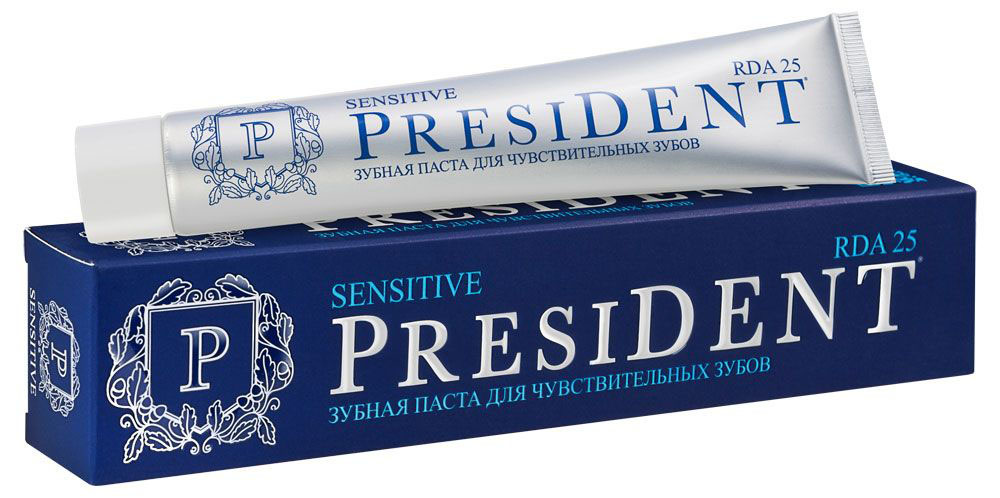
Also has good composition for patients suffering from hypersensitivity. The main effect is provided by potassium nitrate, additionally the teeth are protected by sodium fluoride. In addition, the toothpaste contains a special ultrafine artificially created hydroxyapatite. It allows you to restore the mineral balance of the enamel and protect it from temperature extremes and the penetration of various irritants. It can be used on an ongoing basis with short interruptions.
Silca
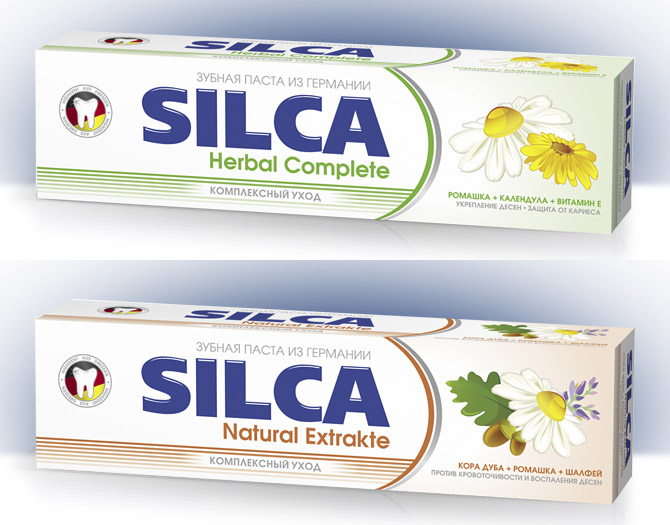
Medicinal professional Toothpaste German production. Silka includes active ingredient potassium citrate, which is able to block the strong sensitivity of the gums and teeth. Due to the high content of sodium fluoride, mineralization of damaged enamel also occurs. It also greatly enhances healing and nerve blocking. In addition, carbamide does not allow exposure to acids from food, which contribute to the release of calcium from tooth enamel.
Other remedies for hypersensitivity
Remodent

This medication is a solution with which occlusions can also be made. Compresses are done exclusively with the local nature of hyperesthesia. To remove the increased sensitivity of the teeth, you need to use Remodent at a concentration of 3%. To obtain the desired therapeutic result, the medicinal solution is used three times a week; a break of 1-2 days is required between procedures. The procedure takes 5-10 minutes.
If the sensitivity is registered only in a few areas of the dentition, you can make an application on the teeth. To do this, a sterile cotton swab is impregnated with Remodent and applied to the sore spot. The processing time for the tooth is approximately 20 minutes. Compresses are also required to be done three times a day. In total, it is necessary to do 15-40 treatment sessions, taking into account the degree of the patient's teeth condition.
Dextranase
This modern medicine is available in the form of tablets that quickly block the activity of nerve endings, which allows you to completely eliminate the symptoms of hyperesthesia. They use the medication for four weeks, carefully following the treatment regimen. Dextranase is taken in the morning and in the evening, one dose. The tablet is required to dissolve in oral cavity until it is completely dissolved. Saliva is not recommended to be swallowed; it is required to spit it into a glass or sink, since it is saturated with active substances and can damage the stomach. After treatment, you can not eat for two to three hours. It is not allowed to use Dextranase and other medications against tooth hypersensitivity at the same time.

The medication is produced in liquid form which allows faster absorption active substances v tooth enamel... First, the teeth are treated with calcium hydroxide, which removes the sensitivity of nerve endings, and then with highly active fluoride. It strengthens the dental part of the tooth, preventing its destruction. Taking into account the severity of hyperesthesia, patients can be assigned 1-2 procedures for using liquid. Retreatment spend no earlier than 6-12 months.
But this medication can only help if the problem of hypersensitivity is not associated with carious destruction and wedge-shaped defects. In the presence of severe pathologies, therapy is associated with filling and correcting defects using more invasive methods.
Attention! The decision to use these funds is made only by the dentist, since, despite their effectiveness, they have rather serious contraindications. In addition, it is important to accurately determine the required course of treatment, taking into account the severity of the disease.
Video - Problem: sensitive teeth
How to prevent recurrence of the disease?
In order not to face unpleasant ones again painful sensations due to the strong sensitivity of the teeth, a number of measures for the care of the oral cavity are required:
- do not eat cold and hot dishes at the same time or with a short interval, this can also cause injuries on the enamel, which will cause carious destruction;
- be sure to use toothbrush and paste in the morning and evening, additionally processing teeth with dental floss;
- do not forget to use rinses that fix the use of pastes, it is better to choose products for sensitive teeth, since there is already a tendency to a similar disease;
- it is advisable to rinse your mouth after each meal clean water if possible, you can use a dental rinse and floss;
- eat less sweet, spicy and excessively hot and cold foods;
- visit the dentist at least 1-2 times a year, even in the absence of obvious problems, they may still be in their infancy and not make themselves felt;
- in the event of caries or irritation in the gums and mucous membranes, immediately seek specialized help;
- for cleaning your teeth, use the most gentle toothbrushes and special professional pastes, you can use devices such as an irrigator, it is suitable for any age.


Every person in life knows the sensation: you drink a drink and your mouth pierces sharp pain... This is most often due to the ingestion of food that is too hot, sour, sweet, or too cold. Sometimes it occurs due to brushing your teeth. It goes so far that even the inhaled air causes unpleasant sensations in the teeth. Both the entire jaw and individual teeth can suffer from high sensitivity. So what are the causes of tooth sensitivity (hyperesthesia) and what to do to reduce the discomfort from this?
Causes of tooth sensitivity
Normally, the nerve endings in the teeth are covered with tissue, which protects them from the effects of external adverse factors.
- Sensitivity increases with abrasion of the enamel as a result of an incorrectly formed bite or exposure of the tooth roots as a result inflammatory diseases periodontium.
- Dentinal tubules may be exposed. All this can be the result of diseases such as caries, erosion, enamel abrasion, dental trauma, periodontitis and many others.
- Bad habits of chopping nuts with your teeth also do not lead to good.
- in terms of rigidity, frequent and inaccurate use with toothpicks.
- It is often a temporary effect of the whitening procedure or generally a side symptom of diseases. internal organs, for example, endocrine disorders or nervous system(with people in a dream, gnashing their teeth vigorously), pathologies of metabolism and the digestive system.

Therefore, it is important to visit a good dentist to treat sensitive teeth. He will examine the teeth, gums and direct them to additional examination, after all, it is important to eliminate the root cause of the condition, and not its symptoms.
The sensitivity of the teeth can be confused with pulpitis, the difference is that with pulpitis the pain is constant, regardless of chemical (food, inhaled air) or mechanical stimuli (brush, toothpick, dental floss).
What to do with increased sensitivity of teeth - salvation by folk methods
In general, you can alleviate your condition with the help of folk remedies.
- So water with the addition can reduce the sensitivity of the teeth.
- To strengthen the gums, eliminate bad breath, a decoction of bird knotweed () helps.
- use burdock.
- Use mixture and to calm nerve endings.
- To strengthen the tooth enamel, boiled eggplant peel powder is used.
Remember that any decoctions should be drunk warm, so the herbs retain their healing properties.
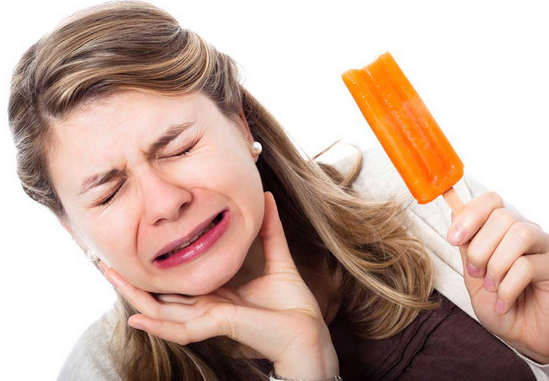
But folk remedies do not replace traditional medicine.
Remineralization is a solution to the problem of tooth sensitivity
As a rule, dentists carry out special procedure entitled - remineralization... Thanks to her, the teeth are saturated with calcium and strengthened, reducing the sensitivity of the enamel. Additionally, calcium preparations are taken orally (for example, calcium glucanate 0.5 g three times a day).
Sometimes tooth sensitivity appears after tooth decay treatment and filling. As a rule, this side effect does not require special intervention and is corrected on its own.
If this does not happen, then you need to urgently consult a dentist. He can clean the root canal or remove the pulp, or apply special pastes to desensitize the teeth.
In some cases, the underlying disease that caused the hypersensitivity of the teeth is first treated.
The modern world dictates strict rules regarding appearance: Hollywood smile becomes a necessity. White teeth rarely come from nature. Therefore, aesthetic dentistry offers a range of services for
Tooth sensitivity is a side effect of whitening
Often side effect their teeth become highly sensitive. This happens due to the abrasion of the enamel as a result of unprofessional actions.
- Therefore, in the first 24 hours after the procedure, try not to consume drinks and dishes that are too contrasting in temperature.
- It is also worth giving up for a while from eating fruit, sweet or sour, spicy food.
- Clean your teeth easily, without pressure, pick up a brush with soft bristles, hard pressure will cause you discomfort and discomfort.
- Fluoride gels and pastes are available in specialty stores. They strengthen the enamel and reduce its sensitivity.
- You can try using toothpastes at home for these purposes. Dentists point out that they can be useful with continued use.
- Besides pastes, there are mouth rinses. All this should be used twice a day, preferably for a month.
Nutrition for sensitive teeth
Don't forget about proper nutrition.
Try to fill your daily diet large amounts of calcium. This will strengthen the enamel of your teeth.
It will not be superfluous for a while to give up pronounced food: spicy, sweet, sour, bitter, and so on.
The most popular folk remedies for the treatment of oral problems are distinguished by their mild restorative effect and long-lasting positive effect... If sensitive teeth do not allow you to sleep peacefully, eat, be in the cold, use the recipes offered by herbal healers.
Tooth enamel hypersensitivity today is one of the most frequent diagnoses, which are put by modern dentists. Unfortunately, almost every person is familiar with such a problem. What is this pathology? What is its mechanism? Let's look at the problem from the inside.
Hyperesthesia - this is what doctors call this phenomenon. And above all, it is accompanying symptom any other diseases of the oral cavity. It can be periodontitis, caries, as well as a consequence of erosion or damage and cracks in the enamel.
It is worth noting that smokers and people who have certain diseases of the nervous system often suffer from hyperesthesia. Also, the cause of this ailment can be improper nutrition, lack of vitamins, stress, various diets and even improper cleaning, when a person presses too hard on the brush or wrong technique cleaning the oral cavity.
In such cases, folk remedies for tooth sensitivity will help very well, using which regularly, you will solve your problem.
Expert opinion

Hypersensitivity of the teeth is not exactly a pathology, rather it is a feature of the structure of the tooth enamel, which contributes to an increase in the contact surface of the nerve endings with food of different temperatures.
To help such patients, dentists prescribe various toothpastes and creams, but traditional medicine also does not stand aside. If the increased sensitivity of the teeth is caused by an inflammatory process, rinse your mouth with infusions of oak bark, calendula, chamomile. Be careful with these solutions - they dry out the mucous membrane.
Butter tea tree and propolis will also relieve discomfort and improve your quality of life. These substances also perfectly eliminate bad smell from mouth.
Traditional medicine for hyperesthesia
In the arsenal of herbalists, you can find a wide range of the most different means which not only can help reduce sensitivity, but it is also good to strengthen the gums and enamel, and destruction. So, what do traditional healers advise?
Herbal decoctions and infusions
The recipe for a decoction for all herbs, one: 1 tablespoon of dry chopped herbs, you need to pour boiling water and bring to a boil over low heat. Then remove from heat, let it brew for about an hour, strain and rinse your mouth with a small amount of broth. Best after meals.
You can mix all these herbs in equal proportions and make a decoction based on such a "collection".
Unusual effective recipes
1. Tea tree oil. In a glass of water, dilute 3 drops of this oil and rinse the mouth with the resulting solution 4 times a day. Tea tree oil will not only reduce sensitivity, but also neutralize bad breath and strengthen tooth enamel.
2. Eggplant peel. An infusion of dried peel is used for rinsing the mouth. It is believed that rinsing like this will help strengthen the enamel and gums.
3. Propolis. They either chew it or make an alcoholic tincture with it.
 4. To reduce the sensitivity of the enamel, you can drink warm milk, keeping it in your mouth for a short time. This method has been used in villages for a long time.
4. To reduce the sensitivity of the enamel, you can drink warm milk, keeping it in your mouth for a short time. This method has been used in villages for a long time.
5. Rinsing the mouth with a salt solution.
6. Rinse your mouth with a solution of baking soda and tea tree oil. This method not only contributes to a decrease in sensitivity, but also.
7. Juices of vegetables and plants. Horsetail juice with honey, cucumber juice and turnip juice can help reduce the sensitivity of the enamel.
8. Sprouted grains of wheat. Their daily use in food in the form of jelly and porridge based on them.
9. Red hot pepper. You need to use it small amounts, since it can cause burns to the mucous tissues of the mouth and stomach. It has analgesic and distracting effects.
It should be noted that people suffering from hyperesthesia should not be neglected proper nutrition and it is worth reducing the amount of sugar in your diet, or even better, completely abandoning it.
It is also desirable to supplement the intake of phosphorus and vitamins C and D. Do not drink too hot and too cold, breathe with an open mouth in the cold, and smoke.
Hypersensitivity of tooth enamel can bother a person from time to time, and can become his constant companion in life. Therefore, it should be remembered that self-medication at home is still not always good, because the cause of hyperesthesia can also be various hidden inflammatory processes, which can only be identified by a doctor.
And only a doctor in this case can prescribe competent treatment and help prevent further dental disease and tooth loss.
Hello dear readers. Many of us are very familiar with such an unpleasant problem as tooth sensitivity. When they react to cold and hot temperatures, we experience severe discomfort and sometimes even pain. We will discuss how to reduce the sensitivity of your teeth at home.
I myself faced such a problem in my youth. I could only eat ice cream with a spoon. Whenever I tried to bite a treat with my teeth, I experienced terrible discomfort. Probably, it was then that some unprintable words appeared in my vocabulary, and I myself first addressed this problem to urban dentistry. It all started with damage to the enamel. What exactly I gnawed as a child is hard to remember, but that was enough for many years of problems and toothache.

The main causes of hypersensitivity
- the layer of tooth enamel has become thinner;
- there are microcracks;
- demineralization;
- not detected caries.

Any damage to the enamel leads to the fact that the next layer - dentin - begins to feel everything from which the enamel should have protected it during normal conditions. Unpleasant sensations pass along fine nerves, forcing you to experience indescribable emotions.
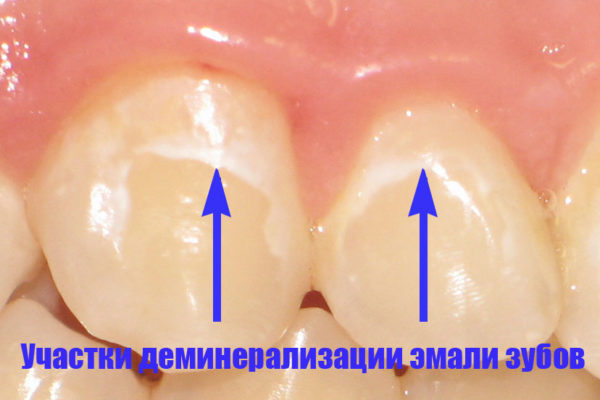
If the causes of sensitivity are carious in nature, you may not even try to treat them at home. Caries or wedge-shaped defect is very likely. They must be removed by cleaning and sealing.
![]()
Symptoms and ways to fight
You can read the forums for a long time and tediously, which have grown like mushrooms after the rain. Sense from them, as from advice in glossy magazines. Because bloggers write them, not specialists. They will teach you to impose plantain on gangrene, and to treat diabetes with dietary supplements.
First of all, you need to understand why you are having this problem. To do this, see your dentist. Let him check the condition of the teeth. If he does not find anything serious, then perhaps he will advise some kind of paste, like Lacalut Extra Sensitive.

In general, such a phenomenon as hyperesthesia (this is how this problem is scientifically called), manifests itself in different ways:
- teeth react only to hot and cold;
- they hurt even if you breathed in cold air;
- there is a reaction to sour / salty / sweet.

Lacalut Extra Sensitive Paste
In adolescents, this phenomenon may be a consequence hormonal changes in organism. Also, the cause can be endocrine diseases, periodontitis, etc. Even an incorrectly selected brush with excessively stiff bristles can cause damage to the enamel and increased sensitivity.
Is it possible to reduce the sensitivity of the teeth at home at all? Yes, if there are no major defects (initial caries, wedge-shaped defect, erosion, trauma leading to chips).
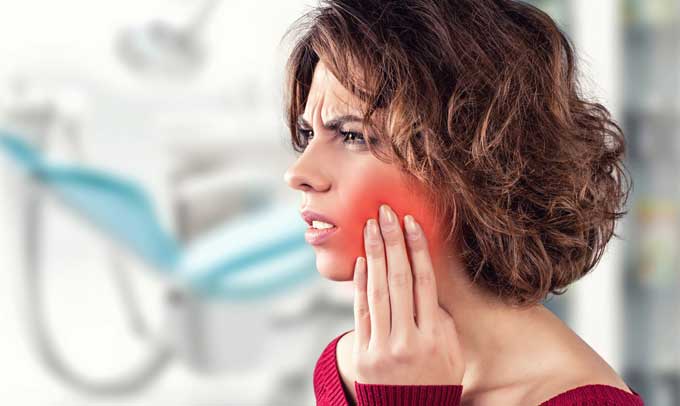
Reviewing our eating habits. For example, we avoid soda, citrus fruits, solid foods like crackers and nuts. We eat foods containing calcium, magnesium, iron, phosphorus. In particular, don't forget to eat fish and seafood, fresh cottage cheese, etc.
Sudden temperature changes like coffee + ice cream negatively affect the state of the enamel. Therefore, you should refrain from such experiments on your health. At the very least, it will be unpleasant.
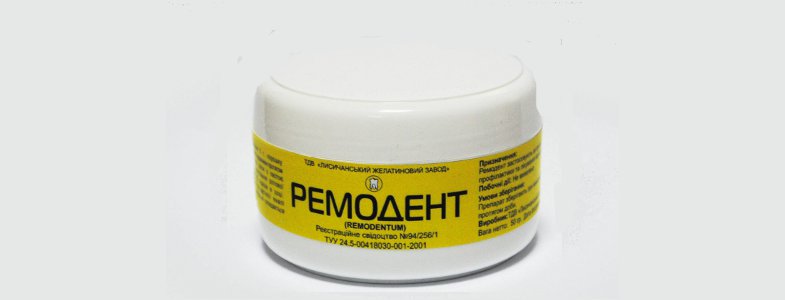
Don't forget about different kinds gels and varnishes, the task of which is to fight microcracks. For example, there are such tools:
- powder "Remodent" containing all the necessary minerals;
- "Bifluorid 12" - enamel varnish with calcium and sodium fluoride;
- calcium gluconate solution.
In general, many such gels, varnishes, etc. are produced in our country, tested, certified, etc. They do not contain any harmful compounds. This is somehow more reliable than the advertised drugs. Therefore, personally, I would recommend something like this for home use... These funds are released without prescriptions.

We treat the sensitivity of the teeth with folk remedies

Traditional medicine is not a panacea, but there is good recipes, which have been tested and are really capable of having an effect on various non-critical enamel defects. I have collected a few of the simpler ones.
- Take 3 drops of tea tree oil and dissolve in a glass of water at room temperature. We rinse our mouth with this composition three times a day.
- We make a decoction from oak bark. The product is on sale in any pharmacy. You need a tablespoon of it in the same glass of water. Fill with boiling water for 10 minutes or set on fire for 5 minutes.
- We make an infusion of chamomile and burdock (in equal parts). We insist on it for an hour, rinse our teeth 2-3 times a day.
- The simplest topical remedy is to hold warm milk in your mouth.

The main thing is to read less of any "medicine man" recipes. It can get worse from using them. Often there are such unique people who will advise almost alcohol and tar. I came across a couple of books in the spirit of "recipes of a traditional healer." Another witch-witch in the forty-fifth generation promises you miracles. You are on her " wise advice»Drink all sorts of nonsense, read conspiracies.
And people really think that if they whisper some words, the hole in the tooth will heal and everything will be fine. It is like curing liver cirrhosis by an effort of will and helping with a bullet wound. And 90% of these books are written from what is collected on the Internet, and are beautifully designed with pictures and in a hard cover with an attractive title.
Tooth hypersensitivity after therapy
In some cases, sensitization may occur after dental treatment. For example, one of the reasons for the increased sensitivity may be bleaching, which is explained by the use of a special gel (chemically active). If so, we recommend using desensitizers - special tools (in the form of a paste, gel or rinse) that reduce the sensitivity of the teeth. In addition, hypersensitivity after whitening or professional hygiene procedures can be reduced with remineralizing therapy.

On a note! Another factor affecting sensitivity is pulp microinflammation. In some cases, they are observed after medical intervention - for example, the treatment of caries.
Even hypersensitivity of the teeth is often provoked by periodontal disease. Here, problems can be solved with the same professional hygienic measures, including the removal of sub- and supragingival deposits, as well as subsequent fluoridation. Finally, high sensitivity results from uncontrolled clenching / grinding of teeth. Because of this, enamel and dental tissues are abraded, which provokes severe hypersthesia.

Getting rid of the problem of tooth sensitivity
You will say that there are many words, but it has not been said, is it possible to remove the sensitivity of the teeth forever? In theory, and if there are no major defects, yes. Moreover, even in ordinary living conditions... But you will have to seriously reconsider your lifestyle. What is more important to you - healthy teeth or crackers for beer, ice cream and soft drinks? So I personally would choose teeth. Because today they react to the cold, tomorrow there will be caries and so on.
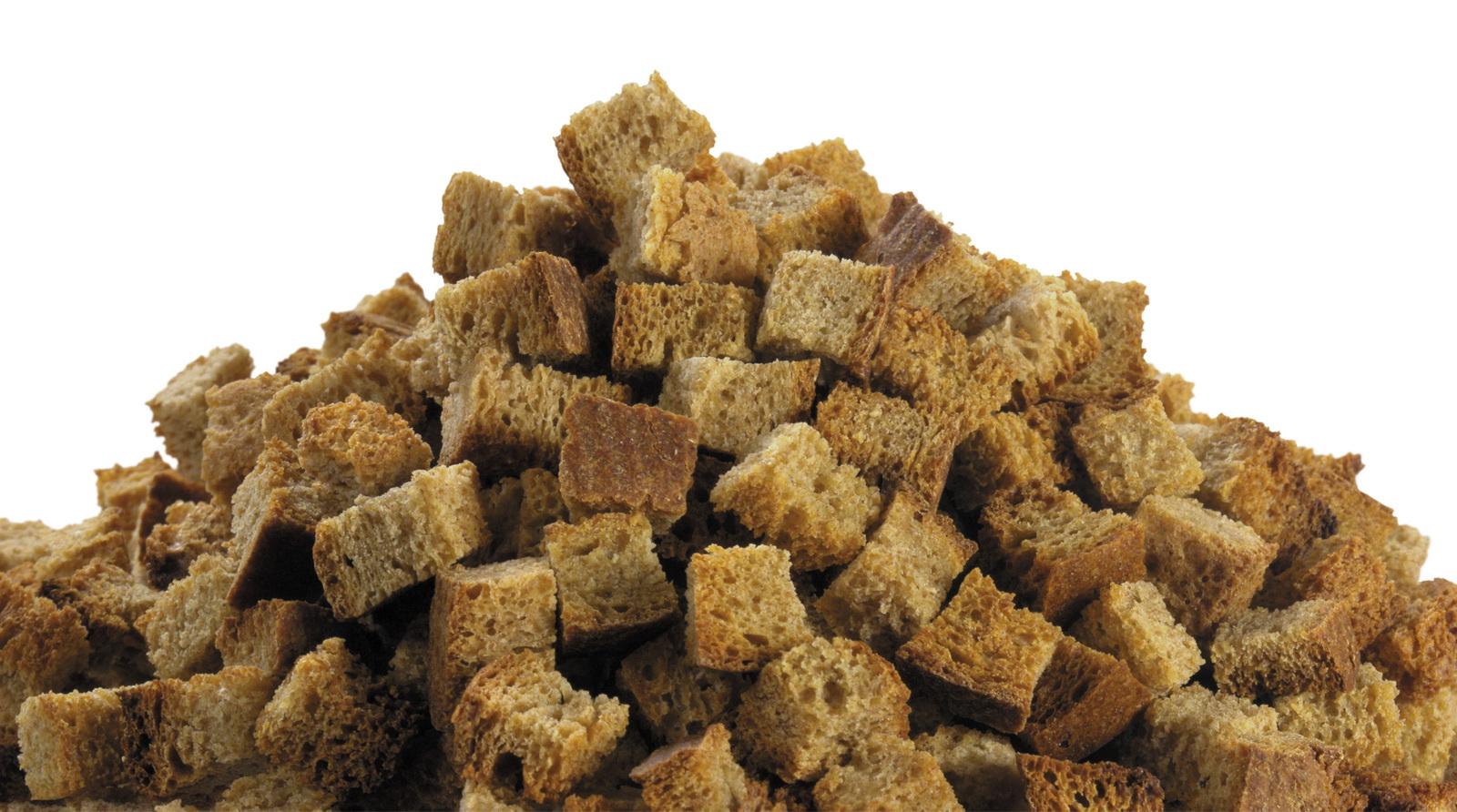
And how many articles I have seen on the Web about the removal of tooth sensitivity. This is not to mention all sorts of miraculous means. Of these, 90% are outright attempts to extort money. Remember the "Kremlin pill"? They were flowers. Here you have all sorts of devices with radiation and space technologies for presidents. In general, if you have a couple hundred extra dollars and a desire to replenish your collection of home uselessness, you can purchase.
Video - Increased tooth sensitivity
Prevention of tooth sensitivity
So that in the foreseeable future you have as much less problems with teeth, and every sip cold water did not cause pain and discomfort, you should adhere to simple rules.
- Do not open bottles with your teeth, etc. Chipped enamel is one of the main causes of pain. Biting nails, pencils, pen caps is also not worth it.
- If you have areas of demineralization in the form of small white spots on the surface of the tooth, go to the dentist. It will help you keep things from getting worse.
- Use fluoride pastes. Quality, not for the dollar.
- Forget about solid food like the above mentioned croutons. Do not crack nuts with your teeth.
- You will have to eat ice cream with a spoon. And not ice cold, but slightly warmed up. Drinking it with hot drinks like tea and coffee is bad for your teeth.
- If your enamel is not perfect, strong bleaching pastes and abrasive powders can damage it. Rinsing with baking soda and peroxide is the same.

When choosing toothpastes, look at their composition and purpose. Treatment-and-prophylactic, of course, can reduce the sensitivity of the teeth. But the usual pastes sold in every supermarket, at most, will partially remove plaque.
Yes, you shouldn't forget about visiting the dentist either - it's not at all difficult to do this 2-3 times a year. Visually, damage to the tooth enamel is invisible. But they are like a gopher. You do not see them, but they are. For treatment, iontophoresis or electrophoresis with calcium gluconate, sodium fluoride, vitamin B and trimecaine can be prescribed. These products help to relieve acute sensitivity of the teeth and guarantee not just temporary relief, but a long-term effect.

On his personal experience and the experience of familiar people I can say - it helps. But, of course, not in one procedure. It is required to carry out a course of treatment and use funds for remineralization.
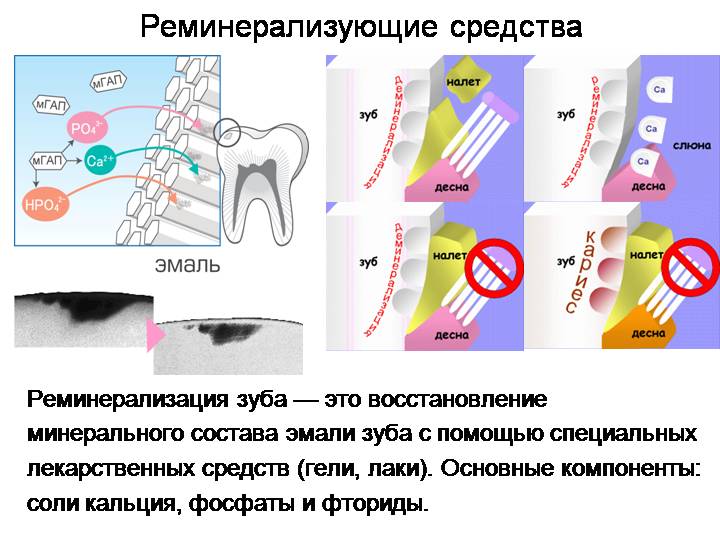
When was the last time you went to the dentist, not because it already hurts, but just to be examined? There is a mass now special means that you can fix the problem by using them at home.
Have any questions or comments? I'm looking forward to! And subscribe to updates. There will be many more interesting things.
Hyperesthesia or tooth sensitivity is one of the most common dental conditions. According to statistics, about 57% of the world's population faces it. Complaints about high sensitivity of teeth can appear at any age and are a serious reason for visiting a dentist.
Causes of tooth sensitivity
Hyperesthesia is the result of thinning or damage to the enamel of the tooth and its hard tissues, which leads to the exposure of the tubules of the dentinal layer, which directly communicate with the pulp and nerves of the tooth. As a result, the slightest external influence on the tooth and its exposed tubules causes pain and discomfort.
Thinning or damage to tooth enamel occurs under the influence of internal and external factors... The main causes of this pathology are the following disorders and diseases.
- Unbalanced diet, poor in vitamins and minerals.
- Hormonal Disorders or uncontrolled use of hormone-containing drugs.
- Frequent infectious diseases.
- Chronic illnesses gastrointestinal tract.
- Chronic stress or nervous disorders.
- Malocclusion.
- Abuse of foods with a high acid content.
- Using a hard-bristled toothbrush.
- Self-whitening of teeth with dubious drugs.
- Pathological increased abrasion of tooth tissues.
- Wedge-shaped teeth defects.
- Caries, periodontitis, pulpitis or erosion of tooth enamel.
- Bad habits- smoking, gnawing hard nuts, grinding teeth, etc.
- Previous dental procedures - whitening, tartar removal, filling, prosthetics, etc.
In order to effectively remove the increased sensitivity of the teeth, it is necessary to accurately establish the cause of the appearance of the pathology. Only by eliminating it, you can get rid of pain, discomfort and other unpleasant sensations.

Sensitivity symptoms
The main symptom of hyperesthesia is a short-term toothache that appears when eating cold, hot, sour, sweet, spicy foods or when brushing your teeth. In this case, the pain can be mild, and manifest itself in the form of minor discomfort, or be acute, very strong and pulsating. In either case, it is felt for only a few seconds, after which it subsides and passes without a trace.
The pain that occurs with severe sensitivity can be local and affect only one or a few teeth, or be generalized in nature - feel in most teeth or in all at once, which indicates the presence of caries, periodontal disease or exposure of the tooth neck.
According to clinical manifestations, it is customary to distinguish between three degrees of tooth sensitivity.
- I degree - the reaction of teeth to external temperature stimuli.
- II degree - a reaction to temperature and chemical irritants.
- III degree- reaction to temperature, chemical and tactile stimuli.
Pain is a constant companion of hyperesthesia and its main symptom... And even if it passes for a while, and the patient can safely eat cold, hot and other irritating foods, this does not mean that the sensitivity of the teeth has passed by itself. V in this case just a kind of period of remission has come, which does not at all cancel compulsory treatment pathology.
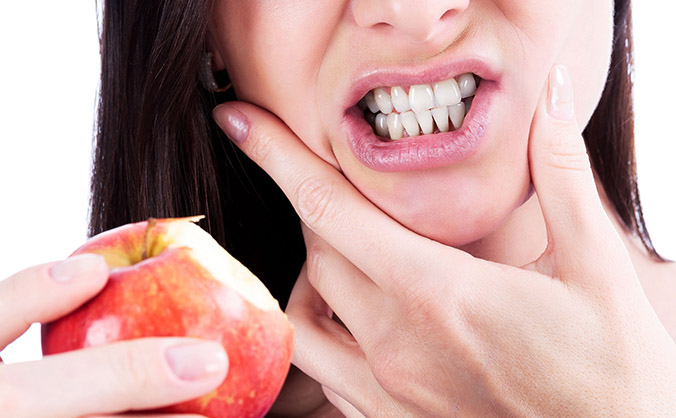
How to treat tooth sensitivity?
Timely treatment helps to relieve tooth sensitivity and prevent further development diseases that caused its appearance. It can be done at home or by your dentist.
At home, you can use special medicated varnishes, gels, powders or foams that help restore protective properties enamels. Depending on the form of release, these agents are applied to the surface of the teeth or used to prepare a rinse solution.
- Varnish Bifluoride 12.
- Fluocal gel or solution.
- Fluorolac preparation.
- Powder for preparation of Remodent solution.
- Strontium chloride paste 75% or its 25% rinse solution.
- 10% calcium gluconate solution.
- Dental Tooth Mousse Gel.
- Dental MI Paste Plus cream.
These products help to reduce tooth sensitivity caused by internal violations in the work of the body and a slight thinning of the tooth enamel. These drugs can be used only after a preliminary consultation with a dentist.
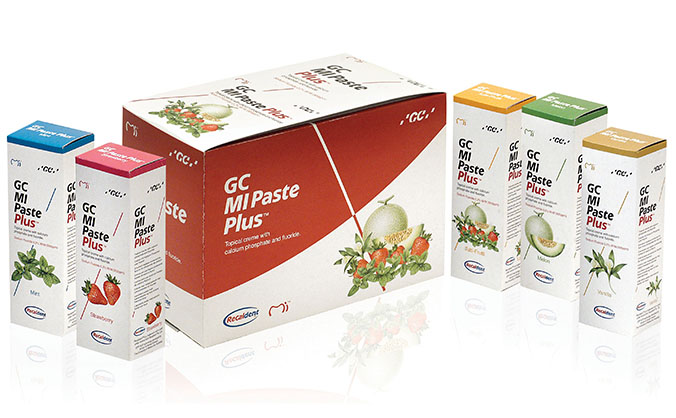
You can also reduce the sensitivity of your teeth at home with the help of special pastes and rinses.
- Oral-B Sensitive Original.
- Sensodyne-F.
- MEXIDOL dent Sensitive.
- Rembrandt Sensitive.

Tooth sensitivity toothpastes should be used during hygienic cleaning of the oral cavity, 2 times a day, in the morning and in the evening. For achievement positive result it is better to apply them in a course - 1 - 2 times a year.
It is important to remember! Healing pastes, like varnishes, gels, powders and foams, are effective only in the absence of dental diseases.
You can also reduce the sensitivity of your teeth folk methods... For these purposes, the following are suitable healing herbs and funds.
- Decoction of oak bark for rinsing.
- Infusion or decoction of chamomile pharmacy.
- Warm solution with 3 drops natural oil tea tree.
- Warm rinse salt solution.
- Regularly chewing propolis.
- Regular use of warm fresh milk kept in the mouth for 15 to 20 minutes.
Any folk remedy from the sensitivity of the teeth should be used only with a slight thinning of the enamel. If you have a serious degree of pathology, you should immediately contact your dentist.

In most cases, hyperesthesia is due to dental diseases. Therefore, get rid of the problem with home methods or tips traditional medicine fail. In this case, home activities only aggravate the course of the pathology and lead to the progression of dental diseases.
